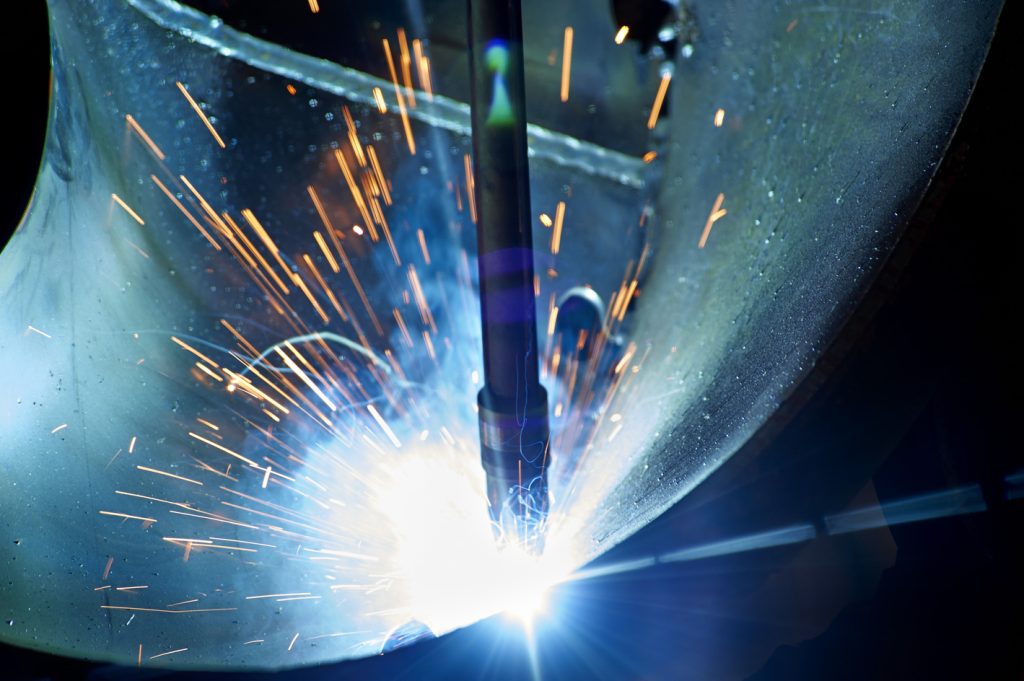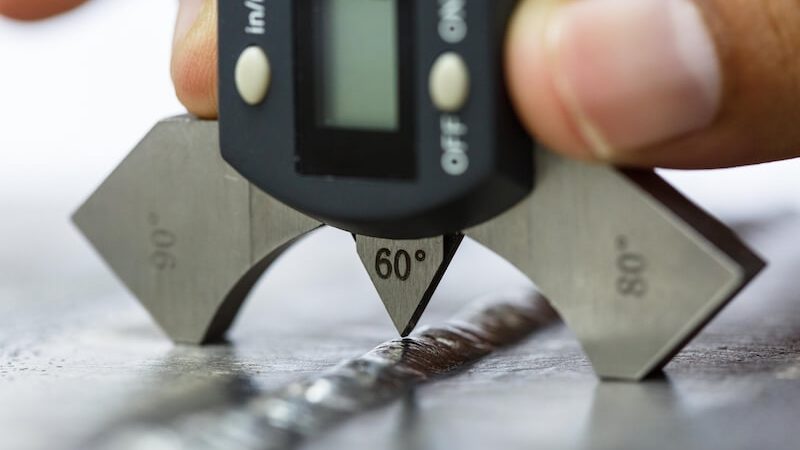The Effect of Rigorous Welding Inspection on Sector Criteria: Supporting Security, Integrity, and Compliance Throughout Different Fields
The role of rigorous welding evaluation is significantly identified as a crucial element in boosting sector criteria, where security, compliance, and reliability take priority across diverse industries. What changes might we prepare for in welding methods as the demand for quality and safety and security escalates?
Relevance of Welding Assessments
Acknowledging the critical duty of welding assessments in preserving quality and security standards, market specialists focus on these evaluations to guarantee structural integrity. Welding examinations work as a crucial checkpoint in the manufacture process, recognizing defects that can compromise the longevity and safety and security of welded frameworks. By systematically evaluating welds, inspectors can detect concerns such as incomplete infiltration, porosity, and splits, which might not show up to the naked eye.
The value of these examinations extends beyond plain conformity; they are necessary for guarding lives and shielding investments. In important sectors such as aerospace, construction, and production, a single defective weld can cause tragic failures, resulting in both monetary loss and human casualties. For that reason, executing strenuous examination protocols reduces these dangers and enhances overall job integrity.
Additionally, regular welding examinations cultivate a society of top quality throughout companies, motivating welders to comply with best methods and maintain high criteria in their job. This dedication to top quality not just improves functional efficiency but also reinforces the track record of companies within their respective markets. Therefore, welding assessments are crucial in advertising security, reliability, and compliance throughout various sectors.
Secret Industry Criteria and Regulations
The structure of welding evaluations is underpinned by a robust collection of industry requirements and regulations that control methods throughout various fields. Trick institutions, such as the American Welding Culture (AWS) and the International Organization for Standardization (ISO), establish standards that guarantee top quality and safety in welding procedures. AWS D1.1 outlines necessary needs for welding steel structures, while ISO 3834 defines high quality demands for blend welding.
In enhancement to these specific standards, industry guidelines like the American National Standards Institute (ANSI) and Occupational Safety and Health Administration (OSHA) mandates better boost conformity by establishing safety and security protocols and operational best practices. These regulations are essential in sectors such as manufacturing, aerospace, and construction, where welding integrity is paramount.
Furthermore, sector-specific standards, such as those from the American Society of Mechanical Engineers (ASME) for pressure vessels, give added layers of examination to make sure that welds satisfy strict safety and performance criteria. Adherence to these criteria not just assists in regulative conformity but additionally fosters a society of top quality and dependability across the welding industry, inevitably securing public welfare and boosting functional efficiency.

Benefits of Compliance and Reliability
Consistently sticking to market criteria and guidelines in welding evaluations yields significant advantages, improving overall integrity and performance. The leading advantage is the guarantee of quality in bonded joints, which directly adds to the safety of structures and tools. Conformity with established requirements decreases the danger of failing and tragic incidents, therefore safeguarding both human life and beneficial assets.
Additionally, organizations that focus on strenuous welding assessments promote a culture of liability Website and professionalism and blog here trust. This commitment not only boosts the reputation of the business yet likewise instills confidence in stakeholders and customers concerning the honesty of services and products. Trusted welding processes cause reduced expenses connected with rework, repair work, and possible lawful liabilities coming from subpar craftsmanship.
In addition, keeping conformity with sector standards facilitates smoother regulative communications, as organizations can readily demonstrate adherence to required procedures (Welding Inspection Gilbert Arizona). This positive method can lead to advantageous collaborations and chances within the market, in addition to accessibility to brand-new markets
Challenges in Welding Examination
Browsing the intricacies of welding evaluation provides a myriad of obstacles that can hinder conformity with market requirements. One substantial challenge is the variability in inspection methods and modern technologies. Different fields might use diverse approaches, causing incongruities in the analysis of weld high quality. The absence of standardized training for assessors can result in different interpretations of assessment requirements, which may endanger security and reliability.
Another difficulty depends on the accessibility of sophisticated inspection tools - Welding Inspection Gilbert Arizona. While modern technologies such as ultrasonic testing and radiography can improve discovery capacities, their execution may be limited by price or availability, especially in smaller procedures. This disparity can cause a reliance on much less effective assessment approaches, raising the danger of undetected problems
In addition, the fast-paced nature of modern manufacturing frequently stress assessors to prioritize rate over thoroughness, possibly forgeting crucial here are the findings defects. Finally, governing conformity can be discouraging due to the developing nature of market criteria, leaving companies having a hard time to maintain up with the current requirements. These challenges require constant enhancement in examination techniques to guarantee the integrity of bonded frameworks throughout numerous sectors.
Future Trends in Welding Practices
Arising modern technologies and developing methods are established to transform welding practices in the coming years. Advancements in automation, such as robotic welding systems, are acquiring traction, enhancing precision and effectiveness while lessening human error. These systems will not just quicken production yet likewise help with regular quality assurance, addressing several of the obstacles dealt with in hands-on welding.
Additionally, the combination of expert system (AI) and equipment understanding into welding processes is positioned to revolutionize inspection and tracking. Real-time data analytics will certainly allow anticipating maintenance, enabling aggressive treatments that minimize downtime and increase safety and security. Furthermore, enhanced reality (AR) and digital reality (VIRTUAL REALITY) innovations are ending up being crucial in training welders, supplying immersive experiences that enhance skill advancement without the risks related to traditional approaches.
Sustainability is likewise a key pattern, as sectors look for greener techniques. The fostering of eco-friendly products and methods, together with energy-efficient machinery, will likely become basic. As industries adapt to these adjustments, the focus will certainly change towards greater conformity with safety and environmental guidelines, making certain that welding methods not just meet current standards however also lead the way for a much safer and more lasting future.

Verdict
In final thought, extensive welding evaluations dramatically boost market requirements by ensuring safety, reliability, and compliance throughout different sectors. As industries proceed to prioritize functional honesty, the value of thorough examinations will just boost, eventually benefiting businesses and society at large.
The role of strenuous welding assessment is increasingly recognized as a vital element in enhancing market standards, where integrity, compliance, and safety take priority across varied sectors. Thus, welding evaluations are indispensable in promoting safety and security, reliability, and compliance throughout numerous industries.
Secret establishments, such as the American Welding Society (AWS) and the International Organization for Standardization (ISO), develop standards that ensure high quality and security in welding procedures. AWS D1.1 outlines vital needs for welding steel frameworks, while ISO 3834 defines quality demands for combination welding.
In verdict, strenuous welding assessments dramatically enhance industry requirements by guaranteeing safety and security, reliability, and compliance across various sectors.